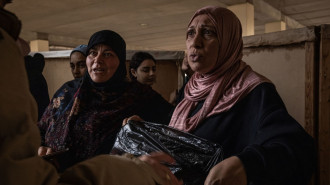Little Plato Magazine offers children food for thought
Children's magazines are invaluable resources. They not only encourage children to read but also facilitate awareness of current issues – including the all-important issue of how to live a healthy life amid the swirl of junk food, electronic overload, and lack of physical movement that characterises modern societies the world over.
But such publications are largely absent in the Arab world. Few magazines addressing children are published in Arabic. Even rarer are Arabic magazines focusing on health. Those
| Health matters, and the health of our children matters more than anything. |
that do address health issues tend to rely on translated articles or news, rather than offering original content targeting the concerns of an Arab readership.
Little Plato Magazine (LPM), which first appeared in Kuwait in March 2012, is changing all of this. Not only is it the only children's magazine available in both Arabic and English, it is also the only children's magazine in Arabic that encourages healthy lifestyles and scientific inquiry among children. Its focus on presenting messages about healthy living to children via a merger of scientific education and entertainment makes it stand out even more.
I first learned about LPM three years ago while I was working at the International Medical Center in Jeddah. A friend told me about a health magazine for children and asked for my opinion. I found the project quite interesting, especially since it dealt with some topics related to my specialisation (orthopaedics), like healthy bones and vitamin D. Now, after three years, I am impressed to see that the project has grown substantially, with 10,000 copies distributed free to public and private schools in Kuwait each month by Dasman Diabetes Institute, the sponsor of the project.
Non-communicable diseases such as diabetes, obesity, and cardiovascular diseases are epidemic in the Arab region.
Health awareness is a necessity in our present day and age. Non-communicable diseases (NCD) such as diabetes, obesity, and cardiovascular diseases (CVD) are epidemic in the Arab region. According to the International Diabetes Federation, almost 37 million people in the Middle East and North Africa (MENA) region suffer from diabetes, and this figure is expected to rise to 68 million by 2035. Children are now getting Type 2 Diabetes (T2D) at ages as young as ten years old. Obesity is soaring among the young. Fifty percent of people with diabetes die of cardiovascular disease (primarily heart disease and strokes), and the World Health Organisation projects that diabetes will be the 7th leading cause of death in 2030.
Prevention is the key to stop this downward spiralling health trend. The foundation of prevention is relatively simple: a good diet, exercise, a balanced life. So why do people not do the things they need to do to keep themselves healthy? Because they underestimate the risks? Because they are not aware of the risks to begin with? Or because it all seems complicated and, frankly, boring?
Making healthy practices enjoyable is an important piece of the puzzle as to how to promote health in the wider society. The magazine is scientifically sound: all of the information presented is checked by medical experts. But by addressing children directly, in language that is simple and appealing, LPM makes this information relevant to children.
In particular, LPM provides a unique tool for helping children understand and manage their diabetes. It has come to my attention that pediatric consultants at Dasman Diabetes Institute keep noting that not only does LPM address important topics in diabetes, like dealing with low and high blood sugars, the insulin pump, and healthy food habits, but it also provides a way to motivate children. A smart consultant has used LPM as a reward to give to kids when their blood sugar was within target levels. She wanted to motivate them and make them love to come to Dasman.
LPM's focus on healthy lifestyles is important for all children, not just those with diabetes. Health matters, and the health of our children matters more than anything. If we can get children to understand the importance of making healthy choices about nutrition, activity, and overall lifestyle, they will carry these messages with them into adulthood - and our entire society will benefit.
Opinions expressed in this article remain those of the author and do not necessarily reflect those of al-Araby al-Jadeed, its editorial board or staff.

![Palestinians mourned the victims of an Israeli strike on Deir al-Balah [Getty]](/sites/default/files/styles/image_684x385/public/2024-11/GettyImages-2182362043.jpg?h=199d8c1f&itok=xSHZFbmc)


![The law could be enforced against teachers without prior notice [Getty]](/sites/default/files/styles/image_684x385/public/2178740715.jpeg?h=a5f2f23a&itok=hnqrCS4x)
 Follow the Middle East's top stories in English at The New Arab on Google News
Follow the Middle East's top stories in English at The New Arab on Google News


